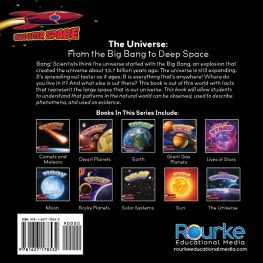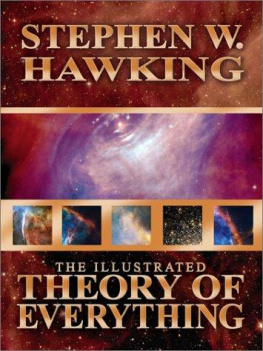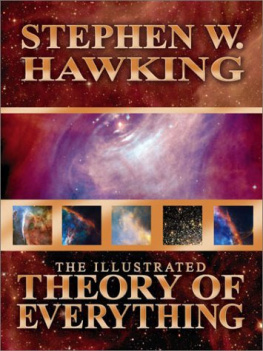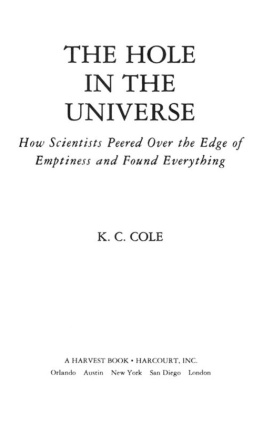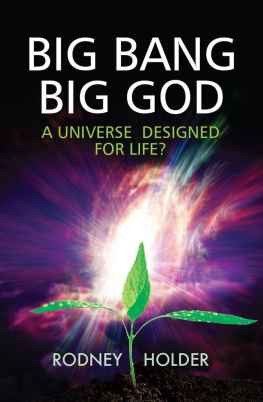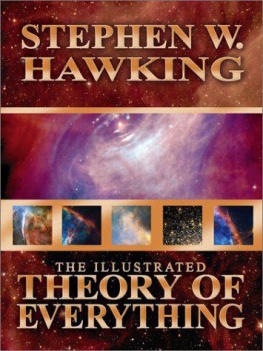Copyright 2020 Ned Wisnefske. All rights reserved. Except for brief quotations in critical publications or reviews, no part of this book may be reproduced in any manner without prior written permission from the publisher. Write: Permissions, Wipf and Stock Publishers, W. th Ave., Suite , Eugene, OR 97401 .
W. th Ave., Suite
Names: Wisnefske, Ned, 1954 , author.
Title: Could God fail? : the fate of the universe and the faith of Christians / Ned Wisnefske.
Description: Eugene, OR: Cascade Books, 2020 | Includes bibliographical references and index.
Identifiers: isbn 978-1-5326-4652-2 ( paperback ) | isbn 97 8-1-5326-4653-9 ( hardcover ) | isbn 97 8-1-5326-4654-6 ( ebook )
Subjects: LCSH: Religion and science. | Ethics. | CreationReligious aspectsChristianity. | Christian Theology. | Philosophical theology.
Manufactured in the U.S.A. November 3, 2020
The Scripture quotations contained herein are from the New Revised Standard Version Bible, copyright 1989 , Division of Christian Education of the National Council of Churches of Christ in the United States of America. Used by permission. All rights reserved.
Preface
In everything do to others as you would have them do to you; for this is the law and the prophets.
Matthew 7:12
T hese words of Jesus present a demanding and difficult rule to live by. Why should I follow it? I have to wonder, did he really mean to follow the golden rule in every thing? Isnt it enough to follow the golden rule in some things? Besides, does it really apply if following the rule will be a burden to me, or will cost me, or if I will be taken advantage of?
The aim of this essay is to show that following the golden rule is the way to live because it accords with the way the world really is. We will live according to the golden rule, in the final analysis, only if doing so accords with the way the world is, only if we can see that it is intrinsically the right way to live. Otherwise, we will make excuses not to, just because it is so difficult and will cost us if we do. Jesus gave that rule, the prophets proclaimed it, and Gods law prescribed it not arbitrarily, not as a test, not because it would make us happy, but because it fits with the way the world is.
On the face of it, following the golden rule seems contrary to our strife-filled world, where all living things seem to be struggling to survive against other living things. This presents a challenge for biblical faith, as well as other religions and philosophies that believe the golden rule is the basis of morality. More definitely, in answer to the question, Why should I follow it? Christians can no longer reply simply, because Jesus said so, and the time has long passed when the threat God will punish you if you dont moved us to follow the rule. Few today believe in hell; fewer still think they are going there. There was a time when gratitude for being saved inspired people to follow Jesuss words. But if there is no hell to be saved from , there is no salvation to be grateful for . When the threat disappears, gratitude for being saved from that threat evaporates as well.
What about gratitude for the gift of life itself? Isnt that motivation enough for us to follow the golden rule? Not when most of us take life for granted. For most of us the necessities of life are nothing special. In the United States, for example, in addition to the right to life, we feel entitled to pursue happiness, and we expect to find it. For most of us, consequently, while gratitude for our lives may spark feelings of kindness toward family and friends, it will never fire concern for the needs of others. Not only that, but the thought I know that my life is a gift from God; I am grateful for it; and thats why I live according Gods will actually shows how far we are from a biblical understanding. From the biblical point of view, it is not enough to say, Life is a gift from God; it is truer to say, Life is Gods. Life is on loan, not something that is mine to do with as I please. When gratitude does not spring from the realization that everything is Gods, the acts that follow are half-hearted, halfway, sometimes measures. As a result, we fall short of doing to others as we would have them do to us, and the needs of others go unmet.
I might try to convince myself, finally, that following the golden rule in some things is good enough as long as I do my best, because God is tolerant and forgiving. Then it does not really matter that I do not follow the rule in everything because God will forgive me and I will keep trying. Then in good conscience I can say, I follow the golden rule. So maybe Jesus didnt really mean in every thing anyway.
The aim of this essay is to have us see the world in such a way that living according to the golden rule is the way to live. Only when we see that following the rule accords with the way the world really is will we follow it. If it does not, we will find excuses not to, because doing so will be costly. We will not do as we would be done by in everything , but only in some things, and it will require all manner of pleas, threats, promises, and rewards to get us to act that way some times. The truth about how the world is and the truth about how to live need to fit together if we are to follow the golden rule. We have to see intrinsic reasons for living that way and do it for its own sake. Otherwise, self-serving interests such as public recognition, personal satisfaction, and divine approval will be the real motivators. Then, because those things are really what is important to us, and we can obtain them in easier ways than by following the golden rule, we will. Eventually, self-serving motives for following the golden rule have to fall away, the light has to dawn, and we have to come to see how things really are, so that living the golden rule is simply what there is for us to doit is what needs doing, it is good in itself, or it is simply the right thing to do.
This happens when we see past ourselves and awake to whats going on in the world. In the final analysis, we will follow the golden rule because we see that that way of living conforms to the way the world really isand that that is the reason Jesus said it, and why it is the law and the prophets, not because God arbitrarily commanded it. From the biblical point of view, the reasoning can be as simple as this: God loves the world, therefore I should too. A nonreligious person might come at it from another angle: upon reasoned reflection, doing to others as I would have them do to me is obviously true, and since this is rooted in compassion, the universe must be too.
How are things, really? What is the Big Picture? We live in a universe that appears to be disintegrating, and on a planet where all forms of life are threatened, including our own. We are living, it seems, between a Big Bang and a Big Freeze. In the meantime, if asteroids or volcanic activity dont destroy us, we ourselvesthrough nuclear destruction, environmental degradation, or genetic malfeasancemay. Did something go wrong with our world? Who or what is at fault? Is it matter itself? Human beings? God? Something else? If that is the Big Picture, then what does theology have to say about it, how will it help elicit faith in God, and how will living according to the golden rule spring from that faith? The aim of this essay is to show how the fate of the universe and the faith of Christians fit together so that in everything do to others as you would have them do to you is the obvious way to live.



